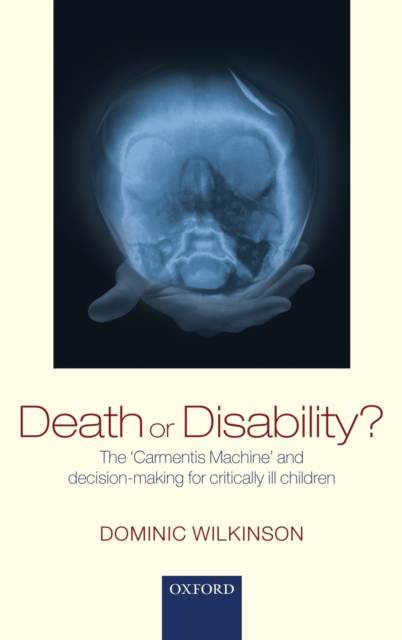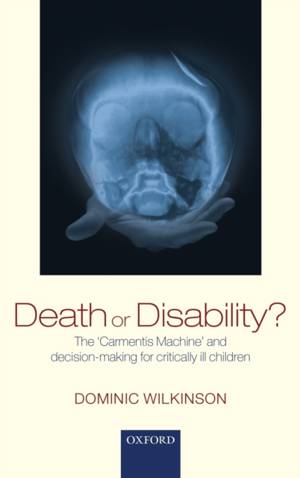
- Afhalen na 1 uur in een winkel met voorraad
- Gratis thuislevering in België vanaf € 30
- Ruim aanbod met 7 miljoen producten
- Afhalen na 1 uur in een winkel met voorraad
- Gratis thuislevering in België vanaf € 30
- Ruim aanbod met 7 miljoen producten
Zoeken
Death or Disability?
The 'Carmentis Machine' and decision-making for critically ill children
Wilkinson
Hardcover | Engels
€ 132,95
+ 265 punten
Omschrijving
In ancient Rome parents would consult the priestess Carmentis shortly after birth to obtain prophecies of the future of their newborn infant. Today, parents and doctors of critically ill children consult a different oracle. Neuroimaging provides a vision of the child's future, particularly of the nature and severity of any disability. Based on the results of brain scans and other tests doctors and parents face heart-breaking decisions about whether or not to continue intensive treatment or to allow the child to die. Paediatrician and ethicist Dominic Wilkinson looks at the profound and contentious ethical issues facing those who work in intensive care caring for critically ill children and infants. When should infants or children be allowed to die? How accurate are predictions of future quality of life? How much say should parents have in these decisions? How should they deal with uncertainty about the future? He combines philosophy, medicine and science to shed light on current and future dilemmas.
Alleen bij Standaard Boekhandel
+ 265 punten op je klantenkaart van Standaard Boekhandel
Beoordelingen
We publiceren alleen reviews die voldoen aan de voorwaarden voor reviews. Bekijk onze voorwaarden voor reviews.












